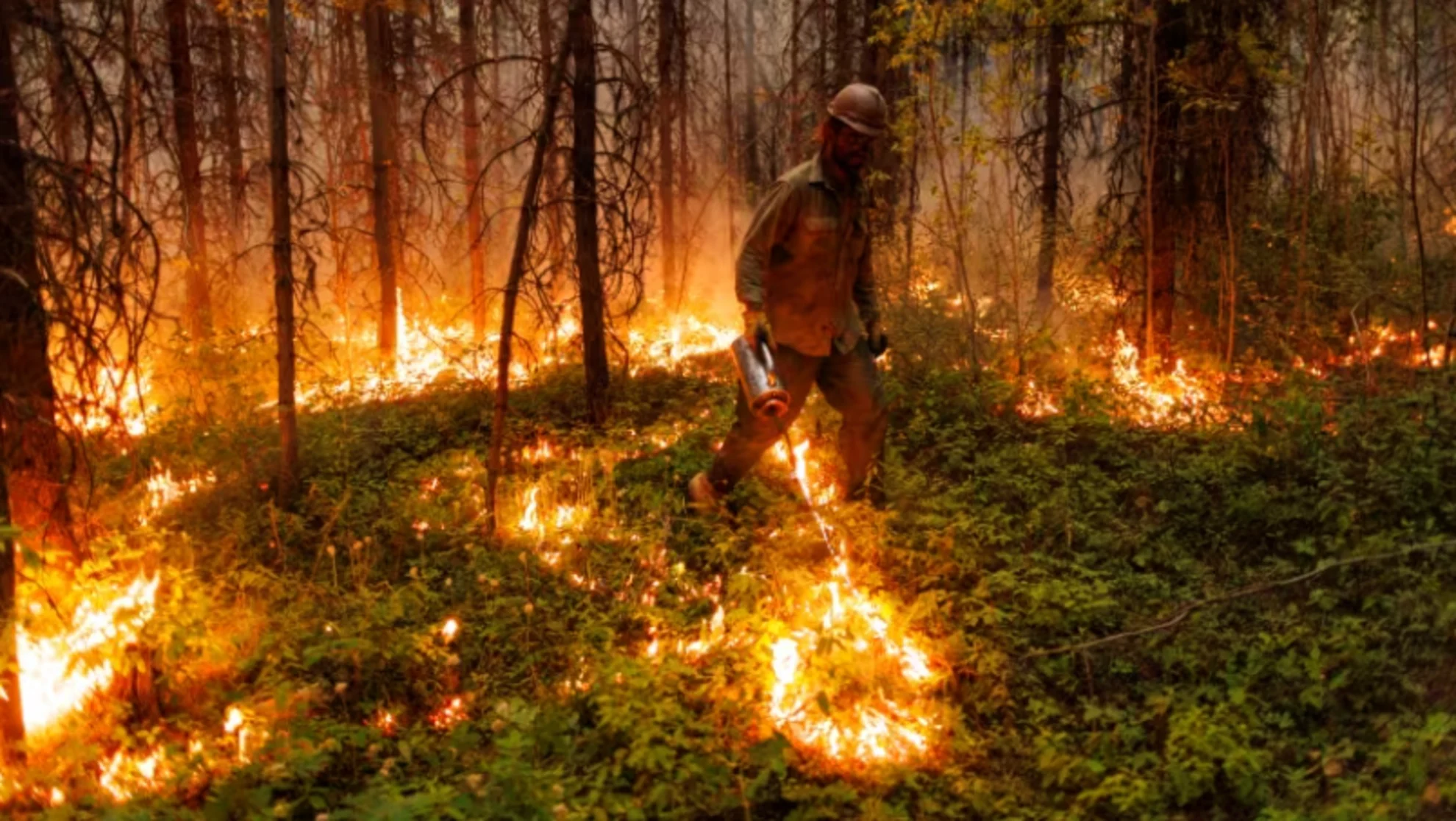
Experts advise B.C. residents to prepare early for wildfire season
As wildfire season approaches, experts are advising B.C. homeowners and communities to prepare for a potentially challenging wildfire season.
Lori Daniels, Koerner Chair of the Centre for Wildlife Coexistence at the University of British Columbia (UBC), says an ongoing multi-year drought, which contributed to last year's severe wildfire season, "has primed us for another intense summer."
"Almost a hundred fires from last season are still burning in northeast B.C., with new wildfires breaking out," said Daniels in a UBC News interview. "Now is the time to start thinking about how to be 'FireSmart.'"
FireSmart B.C., which aims to educate people on how to mitigate wildfire damage, offers a series of guidelines to decrease losses from wildfires and improve fire resiliency in communities.
SEE ALSO: What we can learn from Canada's record wildfire season as a new one approaches
While Daniels says wildfire management is becoming increasingly challenging in B.C. and across the world due to climate change, she and other experts hope spring rains will follow this year's dry winter to reduce wildfire risks.
"It's surprising how quickly we can bounce back, but the trends with climate change and … an El Niño year have not been looking good in terms of the scale of snow and rain we need," Tim Morris of the B.C. Watershed Security Coalition told CBC's The Early Edition.
"There's still hope that we might get these heavy rains as we approach summer, but we don't want it all at once because then we get very large floods as well."
Wildfire preparations
Daniels said B.C. has made significant strides to proactively thin out forests near communities in fire-prone regions.
"This enhances firefighters' ability to contain fire before it reaches homes," she said.
Mathieu Bourbonnais, a former wildland firefighter and assistant professor at UBC Okanagan, told UBC News that the ?aq'am First Nation in southeast B.C. successfully implemented preventative measures that saved "many homes and the Cranbrook International Airport during the St. Mary's River fire in July 2023."
"While these plans require years of planning with a narrow implementation window, their effective execution can protect communities and restore wildlife habitat and cultural resources," he said.
"Each season that passes without implementing these measures means we miss opportunities to enhance resilience and learn to coexist with wildfire."
RELATED: B.C. officials warn of early, 'challenging' wildfire season
Early preparations for homeowners include checking roofs, cleaning gutters, and clearing yard clutter of flammable materials, Daniels said.
"Be sure campfires are fully extinguished, be aware that motorbike and ATV engines can spark grass fires in dry areas, and refrain from discarding burning cigarettes," she said.
'We all have to use less'
Morris says snowpack levels are currently 34 per cent below normal averages, "which is the worst it's been in two decades" and adds to ongoing drought concerns.
"B.C. has always had this reputation of having a lot of rain, a lot of water, and we have to sort of change our mindset from this myth of abundance to recognizing that we have less water than we think we do," he said.
While it's become crucial to reduce demands on water reservoirs, he says, the B.C. government has a long way to go to incentivize water conservation, especially for industrial users.
DON'T MISS: Officials already preparing for potentially active 2024 wildfire season in B.C.
"We all have to use less and we have to try and boost our supplies where we can … [but] some of the largest [industrial] users use the same amount as a medium-sized city," he said, adding companies are not required to report their water intake and are charged low fees.
"It's only about $5 for every Olympic-size swimming pool of water they use."
Morris says small changes by B.C. residents, such as shorter showers or a low-flow shower head, can have an impact on water supply.
WATCH: Early wildfire season declared in Alberta, here's what that means
This article, written by Arrthy Thayaparan, was originally published for CBC News. With files from The Early Edition
Thumbnail image courtesy: Jesse Winter via CBC.